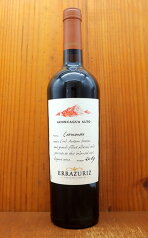(n) China (now regarded as derogatory)
(n) Mahavairocana (name of a Bodhisattva)
(n) (Buddh) dhyana (profound meditation)
(n) husband (informal)
master (of house, shop, etc.)
word used to address a male patron or customer (sir, boss, master, governor)
patron of a mistress, geisha, bar or nightclub hostess
(P)
(n) husband (informal)
master (of house, shop, etc.)
word used to address a male patron or customer (sir, boss, master, governor)
patron of a mistress, geisha, bar or nightclub hostess
(pn,adj-no) where
(n) (Buddh) manas (defiled mental consciousness, which gives rise to the perception of self)
(n-adv,n-t) moment
instant
juncture
(n-t) (a) moment
an instant
(n-t) (a) moment
an instant
(n) (Buddh) kimnara (celestial musicians and protectors of Buddhism)
(n) (sens) Chinese person
(n) (sens) bamboo shoots boiled, sliced, fermented, dried or preserved in salt, then soaked in hot water and sea salt
(n) (hon) young master
young gentleman
(n) master
head of household
man of the house
principal supporter of a temple
(n) dilettantism
amateurism
(n) gents
gentlemen
(n) temple to which a family belongs
(n) Central China
(n) (1) 10^72
(2) any extremely great number (san: nayuta)
(n) (Buddh) manas-vijnana (defiled mental consciousness, which gives rise to the perception of self)
(adj-na) ephemeral
transitory
(n) Jainism
(n) Jainism
(ateji) (n) (uk) Indochina
(n) (sens) Chinese soba
ramen
(oK) (n) (sens) Chinese soba
ramen
(n) (sens) Second Sino-Japanese War (1937-1945)
(n) Prunus pseudo-cerasus
(n) (sens) Chinese food



![OPI オーピーアイ ベースコート 15ml NTT10 国内正規品 O・P・I ベース・トップコート [0015/NTT10] メール便無料[A][TG100] ナチュラルネイル ベースコート マニキュア 保護](https://thumbnail.image.rakuten.co.jp/@0_mall/cosmenana/cabinet/10585/1058502015.jpg?_ex=238x238)